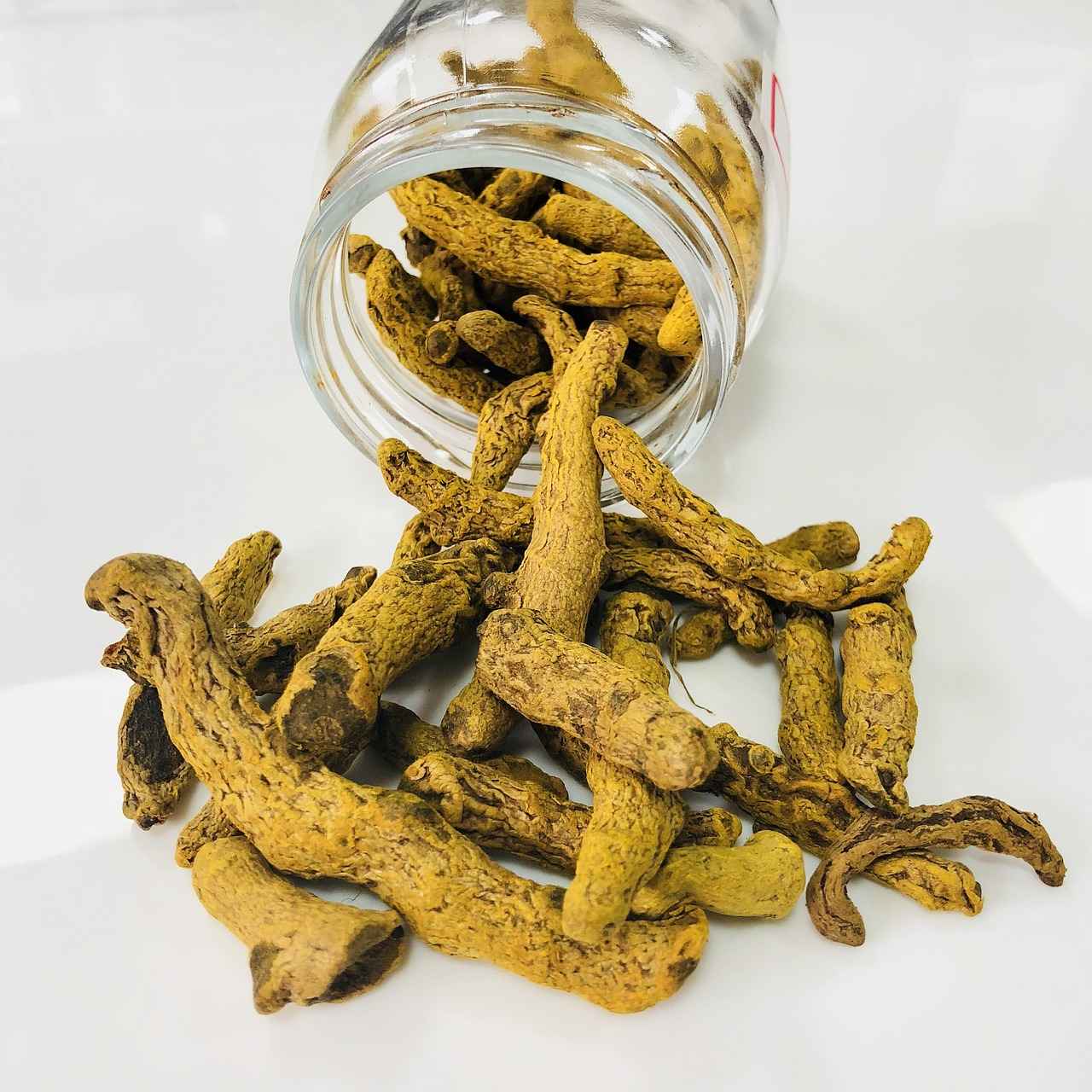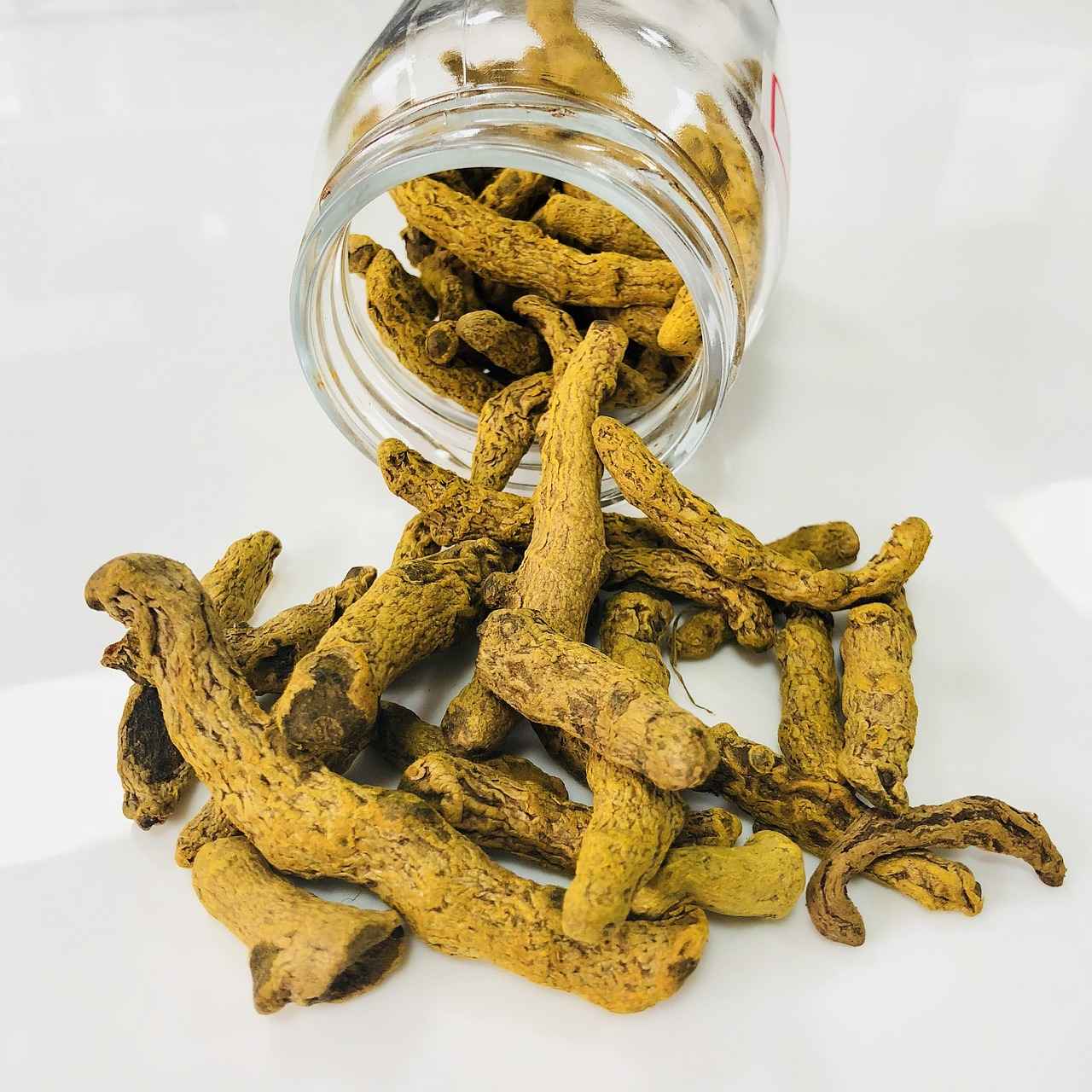This article delves into the remarkable anti-inflammatory properties of curcumin capsules, exploring their health benefits, mechanisms of action, and practical insights for incorporating them into your wellness routine.
What is Curcumin?
Curcumin is the active compound found in turmeric, renowned for its vibrant yellow color and numerous health benefits. It is primarily recognized for its potent anti-inflammatory and antioxidant properties, making it a popular choice for those seeking natural remedies.
How Does Curcumin Work?
Curcumin exerts its effects by modulating various molecular pathways involved in inflammation. It inhibits pro-inflammatory cytokines and enzymes, which helps to reduce inflammation at the cellular level.
The Role of Cytokines
Cytokines are signaling proteins that mediate inflammation. Curcumin’s ability to inhibit these molecules contributes significantly to its anti-inflammatory effects and overall health benefits.
Curcumin and Oxidative Stress
Curcumin also combats oxidative stress, a condition often linked to chronic inflammation. By neutralizing free radicals, curcumin protects cells from damage, thereby promoting overall health.
Health Benefits of Curcumin Capsules
- Joint Health and Arthritis: Curcumin’s anti-inflammatory properties make it particularly beneficial for individuals suffering from arthritis, alleviating pain and improving mobility.
- Heart Health Support: Studies suggest that curcumin may improve heart health by reducing inflammation and oxidative stress, potentially lowering the risk of heart disease.
Recommended Dosage of Curcumin Capsules
Determining the right dosage of curcumin capsules is essential for maximizing their benefits. Most studies suggest a daily intake of 500-2000 mg of curcumin, depending on individual health needs and conditions.
Potential Side Effects of Curcumin
While curcumin is generally considered safe, some individuals may experience side effects such as gastrointestinal discomfort, nausea, and diarrhea, particularly at high doses.
Conclusion: Embracing Curcumin for Better Health
Incorporating curcumin capsules into your wellness routine can provide significant anti-inflammatory benefits, promoting better health and well-being. Always consider consulting with a healthcare professional for personalized advice.

What is Curcumin?
Curcumin is a natural compound derived from turmeric, a spice commonly used in cooking and traditional medicine. This vibrant yellow pigment is not only responsible for turmeric’s distinctive color but is also renowned for its extensive health benefits. Curcumin has gained significant attention for its anti-inflammatory and antioxidant properties, making it a popular choice among health enthusiasts and researchers alike.
Research indicates that curcumin can play a vital role in promoting overall health. Its ability to combat inflammation is particularly beneficial for individuals suffering from various chronic conditions. Here are some notable health benefits:
- Joint Pain Relief: Curcumin is known to alleviate symptoms of arthritis and joint pain by reducing inflammation.
- Heart Health: Studies suggest that curcumin may lower the risk of heart disease by improving endothelial function and reducing inflammation.
- Brain Function: Curcumin may enhance cognitive function and protect against neurodegenerative diseases due to its antioxidant effects.
Curcumin influences various cellular processes. It interacts with several molecular targets, including:
- Cytokines: Curcumin inhibits pro-inflammatory cytokines, which are proteins that promote inflammation.
- Oxidative Stress: By neutralizing free radicals, curcumin helps protect cells from oxidative damage.
To reap the benefits of curcumin, a typical dosage ranges from 500 mg to 2000 mg per day. However, it’s crucial to consult with a healthcare professional to determine the appropriate dosage based on individual health needs.
While curcumin is generally safe for most people, some may experience mild side effects such as:
- Gastrointestinal discomfort
- Nausea
- Diarrhea
Individuals with certain medical conditions or those taking specific medications should consult their healthcare provider before starting curcumin supplementation.
Incorporating curcumin into your health regimen can offer numerous benefits, particularly for those dealing with inflammation-related issues. Always consider professional guidance to tailor the use of curcumin to your specific health requirements.

How Does Curcumin Work?
Curcumin, the active compound in turmeric, has garnered significant attention for its impressive anti-inflammatory properties. Its effectiveness lies in its ability to modulate various molecular pathways that are crucial in the inflammatory process. By targeting these pathways, curcumin plays a pivotal role in reducing inflammation at the cellular level.
One of the primary mechanisms through which curcumin operates is by inhibiting the production of pro-inflammatory cytokines. These cytokines are signaling molecules that facilitate the inflammatory response, and their overproduction can lead to chronic inflammation, which is linked to numerous health issues. Curcumin effectively reduces the levels of these cytokines, thereby mitigating the inflammatory response.
Additionally, curcumin inhibits specific enzymes associated with inflammation, such as cyclooxygenase-2 (COX-2) and lipoxygenase. By blocking these enzymes, curcumin helps to decrease the synthesis of inflammatory mediators, further contributing to its anti-inflammatory effects.
Moreover, curcumin’s antioxidant properties complement its anti-inflammatory actions. It helps to neutralize free radicals, which are unstable molecules that can cause oxidative stress and promote inflammation. By reducing oxidative stress, curcumin not only protects cells from damage but also supports overall cellular health.
In summary, curcumin’s multifaceted approach to combating inflammation—through the inhibition of pro-inflammatory cytokines and enzymes, as well as its antioxidant capabilities—makes it a powerful ally in promoting health and well-being.
Incorporating curcumin into your daily routine, whether through dietary sources or supplements, can provide a natural and effective means to support your body’s fight against inflammation.
The Role of Cytokines
Cytokines are crucial signaling proteins that play a significant role in the body’s inflammatory response. They are produced by various cells and act as messengers, facilitating communication between different parts of the immune system. Understanding the function of cytokines is essential for grasping how inflammation occurs and how it can be managed effectively.
When the body encounters an injury or infection, cytokines are released to initiate the inflammatory process. This response is vital for healing and fighting off pathogens. However, an overproduction of cytokines can lead to chronic inflammation, which is linked to various health issues, including autoimmune diseases, heart disease, and cancer.
Curcumin’s Inhibitory Effects on Cytokines
Curcumin, the active compound found in turmeric, has been shown to inhibit the production of several pro-inflammatory cytokines, such as:
- Interleukin-1 (IL-1)
- Interleukin-6 (IL-6)
- Tumor Necrosis Factor-alpha (TNF-α)
This inhibition contributes significantly to curcumin’s anti-inflammatory properties and overall health benefits. By blocking these cytokines, curcumin helps reduce inflammation at the cellular level, promoting a healthier immune response.
Research Insights
Numerous studies have supported the role of curcumin in modulating cytokine production. For instance, a study published in the Journal of Nutritional Biochemistry found that curcumin significantly decreased levels of IL-6 and TNF-α in individuals with chronic inflammatory conditions. This evidence highlights curcumin’s potential as a natural therapeutic agent in managing inflammation.
Conclusion
In summary, cytokines are essential mediators of inflammation, and curcumin’s ability to inhibit their production is a key factor in its anti-inflammatory effects. By incorporating curcumin into your wellness routine, you can harness its potential to support a balanced inflammatory response and promote overall health.
Types of Pro-Inflammatory Cytokines
Understanding the various types of pro-inflammatory cytokines that curcumin targets is crucial for comprehending its role in reducing inflammation and promoting overall health. Cytokines are small proteins that play significant roles in cell signaling during immune responses. They can either promote or inhibit inflammation, depending on their types and the context of their release.
- Interleukin-1 (IL-1): This cytokine is a key player in the inflammatory process, promoting the expression of adhesion molecules and the production of other pro-inflammatory cytokines.
- Interleukin-6 (IL-6): IL-6 is involved in the acute phase response and is known to stimulate inflammation, making it a target for curcumin’s anti-inflammatory effects.
- Tumor Necrosis Factor-alpha (TNF-α): TNF-α is one of the most potent pro-inflammatory cytokines and is associated with various inflammatory diseases. Curcumin has been shown to inhibit its production.
- Interleukin-8 (IL-8): This cytokine attracts neutrophils to sites of inflammation, contributing to chronic inflammatory conditions. Curcumin’s modulation of IL-8 can help reduce inflammation.
Curcumin’s interaction with these cytokines helps mitigate their inflammatory effects, thereby contributing to improved health outcomes. Research indicates that curcumin not only lowers the production of these cytokines but also enhances the body’s ability to combat inflammation.
Moreover, understanding the specific cytokines that curcumin targets can provide insights into its potential therapeutic applications, particularly in conditions characterized by chronic inflammation, such as arthritis, cardiovascular diseases, and metabolic disorders.
Incorporating curcumin into your daily routine could be a proactive approach to managing inflammation and promoting better health. As always, it is advisable to consult with a healthcare professional before starting any new supplement regimen.
Curcumin’s Impact on Cytokine Production
Curcumin, the active compound in turmeric, has garnered significant attention in the field of health and wellness, primarily for its anti-inflammatory properties. Research indicates that curcumin plays a vital role in modulating the production of specific cytokines, which are crucial in the inflammatory response. By inhibiting these signaling proteins, curcumin can effectively reduce inflammation and promote overall health.
One of the key mechanisms through which curcumin operates is its ability to downregulate pro-inflammatory cytokines such as TNF-alpha, IL-1, and IL-6. These cytokines are often elevated in chronic inflammatory conditions and can lead to various health issues, including arthritis, cardiovascular diseases, and metabolic disorders. By reducing their levels, curcumin helps to alleviate symptoms associated with these conditions.
| Cytokine | Function | Curcumin’s Effect |
|---|---|---|
| TNF-alpha | Promotes inflammation | Inhibits production |
| IL-1 | Stimulates immune response | Reduces levels |
| IL-6 | Linked to chronic inflammation | Decreases secretion |
Furthermore, curcumin’s ability to influence the NF-kB pathway is another critical aspect of its anti-inflammatory action. NF-kB is a protein complex that regulates the expression of various cytokines involved in inflammation. By inhibiting this pathway, curcumin not only reduces cytokine production but also helps in protecting cells from oxidative stress, which is often exacerbated by chronic inflammation.
Incorporating curcumin capsules into your daily routine may offer significant health benefits, especially for those dealing with inflammatory conditions. However, it is essential to consult with a healthcare professional before starting any new supplement to ensure its safety and effectiveness for your individual health needs.
Conclusion: The impact of curcumin on cytokine production underscores its potential as a powerful anti-inflammatory agent. By understanding how it works, individuals can make informed decisions about their health and wellness strategies.
Curcumin and Oxidative Stress
Curcumin, the active compound in turmeric, is widely recognized for its remarkable health benefits, particularly in the realm of oxidative stress. Oxidative stress occurs when there is an imbalance between free radicals and antioxidants in the body, leading to cell damage and contributing to various chronic diseases. Curcumin plays a crucial role in combating this condition.
One of the key mechanisms through which curcumin exerts its protective effects is by neutralizing free radicals. Free radicals are unstable molecules that can cause significant cellular damage, leading to inflammation and disease progression. By scavenging these harmful molecules, curcumin helps to maintain cellular integrity and function.
Additionally, curcumin enhances the body’s natural antioxidant defenses. It promotes the activity of several antioxidant enzymes, including superoxide dismutase and glutathione peroxidase, which work synergistically to protect cells from oxidative damage. This dual action of directly neutralizing free radicals and boosting antioxidant capacity makes curcumin an invaluable ally in the fight against oxidative stress.
Research has shown that individuals who incorporate curcumin into their diets may experience a reduction in markers of oxidative stress, which can lead to improved overall health. Conditions such as cardiovascular diseases, diabetes, and even certain types of cancer have been associated with chronic oxidative stress, highlighting the importance of curcumin in preventive health strategies.
In conclusion, the ability of curcumin to combat oxidative stress not only protects cells from damage but also supports overall health and well-being. By integrating curcumin into your daily routine, you may harness its powerful antioxidant properties to promote a healthier lifestyle.

Health Benefits of Curcumin Capsules
Curcumin capsules have gained significant attention in the health and wellness community due to their multitude of health benefits. Derived from turmeric, curcumin is renowned for its anti-inflammatory and antioxidant properties, making it a valuable addition to anyone’s daily routine. This article explores the various health advantages of curcumin capsules, encouraging individuals to consider this powerful supplement.
- Reduces Inflammation: One of the most notable benefits of curcumin is its ability to reduce inflammation. Chronic inflammation is linked to numerous health issues, including heart disease and arthritis. By incorporating curcumin capsules into your regimen, you may experience reduced joint pain and improved mobility.
- Supports Heart Health: Curcumin has been shown to improve heart health by lowering levels of oxidative stress and reducing inflammation. This dual action can help decrease the risk of heart disease, making curcumin a beneficial supplement for maintaining cardiovascular health.
- Enhances Brain Function: Emerging research suggests that curcumin may support brain health by increasing levels of brain-derived neurotrophic factor (BDNF), a protein linked to improved cognitive function. This could potentially lower the risk of neurodegenerative diseases.
- Boosts Immune System: Curcumin’s antioxidant properties can help strengthen the immune system, making it easier for the body to fend off illnesses and infections.
Understanding these benefits can motivate individuals to incorporate curcumin into their daily routines. Whether you are dealing with chronic pain, looking to enhance your heart health, or simply aiming to improve your overall well-being, curcumin capsules offer a natural solution.
In conclusion, the health benefits of curcumin capsules are extensive and well-supported by research. By adding this powerful supplement to your daily routine, you can take proactive steps towards better health and wellness. Always consult with a healthcare professional before starting any new supplement to ensure it aligns with your health needs.
Joint Health and Arthritis
Curcumin, the active compound in turmeric, has garnered significant attention in recent years for its anti-inflammatory properties, particularly in relation to joint health and conditions such as arthritis. Many individuals suffering from arthritis experience chronic pain and reduced mobility, which can severely impact their quality of life. Curcumin’s ability to alleviate these symptoms makes it a valuable addition to the wellness routines of those affected.
Research indicates that curcumin can effectively target the underlying causes of inflammation in the body. It works by inhibiting the production of specific pro-inflammatory cytokines and enzymes that contribute to joint pain and swelling. This action not only helps in reducing pain but also promotes better mobility, allowing individuals to engage in daily activities with less discomfort.
Moreover, curcumin’s antioxidant properties play a crucial role in protecting joint tissues from oxidative stress, which can exacerbate inflammation. By neutralizing harmful free radicals, curcumin helps maintain joint integrity and function. This dual action of combating both inflammation and oxidative stress positions curcumin as a powerful ally for those dealing with arthritis.
Incorporating curcumin into your diet can be done through various means, including taking curcumin capsules or adding turmeric to meals. However, it is essential to consider the bioavailability of curcumin, as it can be challenging for the body to absorb. Pairing curcumin with black pepper, which contains piperine, can enhance its absorption significantly.
In conclusion, curcumin offers promising benefits for joint health, especially for individuals suffering from arthritis. Its ability to reduce inflammation and improve mobility makes it a worthwhile consideration for those seeking natural relief from joint pain. As always, it is advisable to consult with a healthcare professional before starting any new supplement regimen to ensure safety and effectiveness.
Heart Health Support
Curcumin, the active compound in turmeric, has garnered significant attention for its potential role in promoting heart health. Recent studies indicate that curcumin may play a vital role in reducing inflammation and combating oxidative stress, two critical factors that contribute to the development of heart disease.
One of the primary mechanisms through which curcumin supports heart health is by inhibiting the production of pro-inflammatory cytokines. These proteins are known to trigger inflammation in the body, which can lead to various cardiovascular issues. By reducing the levels of these cytokines, curcumin helps to maintain a healthier inflammatory response, potentially lowering the risk of heart-related ailments.
Moreover, curcumin’s antioxidant properties are equally important. Oxidative stress occurs when there is an imbalance between free radicals and antioxidants in the body, leading to cell damage. Curcumin has been shown to neutralize free radicals, thereby protecting the cardiovascular system from oxidative damage. This dual action of reducing inflammation and oxidative stress makes curcumin a powerful ally for heart health.
| Benefit | Description |
|---|---|
| Reduces Inflammation | Inhibits pro-inflammatory cytokines to lower inflammation levels. |
| Combats Oxidative Stress | Neutralizes free radicals, protecting cells from damage. |
| Improves Endothelial Function | Enhances the health of blood vessels, promoting better circulation. |
Incorporating curcumin into your daily routine can be as simple as taking curcumin capsules or adding turmeric to your meals. However, it is essential to consult with a healthcare professional before starting any new supplement, especially if you have existing health conditions or are taking medications.
In conclusion, the potential of curcumin to support heart health through its anti-inflammatory and antioxidant properties is promising. As research continues to unveil its benefits, curcumin may become a staple in the pursuit of better cardiovascular health.

Recommended Dosage of Curcumin Capsules
Determining the right dosage of curcumin capsules is essential for maximizing their benefits. Understanding how to effectively use curcumin can significantly enhance its positive effects on health. This section outlines general guidelines for effective use, ensuring that individuals can safely incorporate curcumin into their wellness routines.
General Dosage Recommendations
Most research indicates that a daily intake of 500-2000 mg of curcumin is optimal for achieving health benefits. The exact dosage may vary based on individual health needs, specific conditions, and the formulation of the curcumin product being used. It’s crucial to adhere to recommended dosages to avoid potential side effects.
- Low Dose: 500 mg may be sufficient for general wellness.
- Moderate Dose: 1000 mg is often recommended for those seeking to manage mild inflammation.
- High Dose: Up to 2000 mg may be beneficial for chronic conditions but should be approached with caution.
Consulting Healthcare Professionals
Before starting any supplement regimen, including curcumin capsules, it is advisable to consult with a healthcare professional. This is especially important for individuals with pre-existing conditions, those taking medications, or pregnant and breastfeeding women. A healthcare provider can help tailor the dosage to individual needs, ensuring both safety and efficacy.
Factors Influencing Dosage
Several factors can influence the appropriate dosage of curcumin, including:
- Age: Older adults may require different dosages compared to younger individuals.
- Health Status: Individuals with chronic diseases may benefit from higher dosages.
- Formulation: The bioavailability of curcumin can vary based on the formulation (e.g., with black pepper extract).
In conclusion, understanding the recommended dosage of curcumin capsules is vital for maximizing their health benefits. By following general guidelines and consulting healthcare professionals, individuals can safely incorporate curcumin into their daily routines for enhanced wellness.
General Dosage Recommendations
When considering the use of curcumin capsules, it is essential to understand the appropriate dosage to maximize their health benefits. Most studies suggest a daily intake ranging from 500 mg to 2000 mg of curcumin, tailored to individual health needs and conditions. This range is designed to accommodate various factors including age, gender, health status, and specific health goals.
- Starting Dosage: For beginners, a lower dosage of around 500 mg per day is recommended to assess tolerance.
- Moderate Use: If well-tolerated, individuals can gradually increase the dosage to 1000 mg daily, which is often effective for general health maintenance.
- Higher Dosage: For those with specific health issues, such as chronic inflammation or arthritis, dosages up to 2000 mg per day may be beneficial, but should be monitored closely.
It is crucial to note that the bioavailability of curcumin is relatively low. To enhance absorption, consider taking curcumin with black pepper extract (piperine) or fat-based meals, as these can significantly improve its effectiveness.
Before starting any new supplement regimen, including curcumin capsules, it is advisable to consult with a healthcare professional. This ensures that the dosage is appropriate for your specific health circumstances and that it does not interact with any medications you may be taking.
In summary, while the general dosage recommendations for curcumin capsules range from 500 mg to 2000 mg daily, individual needs may vary. Always prioritize safety and efficacy by seeking professional guidance.
Consulting Healthcare Professionals
Before embarking on any new supplement regimen, including curcumin capsules, it is crucial to seek guidance from a healthcare professional. This step ensures that the chosen supplement is safe and effective based on individual health conditions and needs.
Many individuals may be tempted to start taking supplements without proper advice, often due to the overwhelming amount of information available online. However, self-diagnosing or self-treating can lead to unintended consequences. Here are several important considerations:
- Personal Health Assessment: A healthcare professional can evaluate your overall health, taking into account any pre-existing conditions, allergies, or medications you may be taking. This assessment is vital to avoid potential interactions.
- Dosage Guidance: Determining the correct dosage of curcumin is essential for maximizing its benefits while minimizing risks. A healthcare provider can offer personalized dosage recommendations based on your specific health profile.
- Monitoring Effects: Regular follow-ups with a healthcare professional can help monitor the effects of curcumin on your health. This is especially important if you experience any side effects or if your health conditions change.
- Evidence-Based Recommendations: Healthcare professionals stay updated on the latest research and can provide insights into the efficacy of curcumin and other supplements, ensuring you are making informed decisions.
In conclusion, consulting with a healthcare professional is a vital step before starting curcumin capsules or any supplement. This practice not only enhances safety but also optimizes the potential health benefits. Remember, your health is paramount, and informed choices lead to better outcomes.

Potential Side Effects of Curcumin
While curcumin is widely acknowledged for its health benefits, it is essential to consider that some individuals may experience side effects. This section aims to explore the potential adverse reactions and important considerations for safe usage of curcumin supplements.
Understanding Side Effects
Curcumin, derived from turmeric, is generally regarded as safe when consumed in recommended amounts. However, some users report experiencing gastrointestinal issues such as:
- Nausea
- Diarrhea
- Stomach upset
These side effects are more likely to occur at higher doses, which is why adhering to recommended dosages is crucial.
Who Should Exercise Caution?
There are specific groups of individuals who should consider avoiding curcumin or consulting a healthcare professional before use:
- Individuals with gallbladder problems, as curcumin may exacerbate these conditions.
- Those on blood-thinning medications, since curcumin can enhance the effects of these drugs, increasing the risk of bleeding.
- Pregnant or breastfeeding women should also seek medical advice, as the effects of curcumin during these periods are not fully understood.
Interactions with Medications
Curcumin can interact with various medications, potentially altering their effectiveness. It is advisable to inform your healthcare provider about all supplements you are taking to avoid any adverse interactions.
Conclusion
In summary, while curcumin is a powerful supplement with numerous benefits, it is vital to be aware of potential side effects and interactions. Consulting with a healthcare professional can ensure safe use and help you reap the maximum benefits of curcumin.
Common Side Effects
Common Side Effects of Curcumin
Curcumin, the active ingredient in turmeric, is celebrated for its numerous health benefits, particularly its anti-inflammatory properties. However, it is essential to be aware of potential side effects that may arise, especially when taken in high doses. Understanding these effects can help individuals make informed decisions about their health.
Gastrointestinal Discomfort
One of the most frequently reported side effects of curcumin is gastrointestinal discomfort. This can manifest as bloating, gas, or general unease in the stomach. Such symptoms are often dose-dependent, meaning they are more likely to occur at higher intake levels.
Nausea and Diarrhea
In addition to gastrointestinal discomfort, some individuals may experience nausea or even diarrhea after consuming curcumin. These symptoms can be particularly pronounced in those who are not accustomed to taking turmeric supplements or who consume them in excess. It is advisable to start with lower doses and gradually increase as tolerated.
Allergic Reactions
While rare, some individuals may have an allergic reaction to curcumin. Symptoms can include rash, itching, or swelling. If any of these symptoms occur, it is crucial to discontinue use and seek medical advice.
Interactions with Medications
Curcumin may also interact with certain medications, such as blood thinners and diabetes medications. This interaction could enhance or diminish the effects of these drugs, making it essential to consult with a healthcare professional before starting curcumin supplements.
Who Should Exercise Caution?
- Individuals with gallbladder issues
- Those on anticoagulant medications
- People with diabetes or blood sugar regulation concerns
In conclusion, while curcumin offers significant health benefits, it is vital to be aware of potential side effects. Starting with a lower dosage and consulting with a healthcare provider can help mitigate risks and ensure safe consumption.
Who Should Avoid Curcumin?
Curcumin, the active compound in turmeric, is celebrated for its numerous health benefits, particularly its anti-inflammatory and antioxidant properties. However, it is crucial to recognize that not everyone can safely incorporate curcumin into their wellness regimen. Certain individuals may need to exercise caution or seek guidance from healthcare professionals before using curcumin supplements. Below are key groups that should consider avoiding curcumin or consulting with a healthcare provider:
- Individuals with Gallbladder Issues: Those who have a history of gallbladder problems, such as gallstones or cholecystitis, should be cautious with curcumin. This compound can stimulate bile production, potentially exacerbating existing gallbladder conditions.
- Pregnant or Nursing Women: Pregnant and breastfeeding women are often advised to avoid high doses of curcumin. While turmeric is generally safe in culinary amounts, concentrated curcumin supplements may have unknown effects.
- People on Blood Thinners: Curcumin may have blood-thinning properties, which can interfere with anticoagulant medications like warfarin or aspirin. Individuals on these medications should consult their healthcare provider before using curcumin.
- Those with Certain Health Conditions: Individuals suffering from conditions like diabetes or those preparing for surgery should be cautious, as curcumin can affect blood sugar levels and may interfere with surgical procedures.
- People Taking Specific Medications: Curcumin can interact with various medications, including those for diabetes, heart conditions, and chemotherapy drugs. It is essential to discuss any potential interactions with a healthcare professional.
In summary, while curcumin offers numerous health benefits, it is essential for certain individuals to approach its use with caution. Consulting a healthcare provider can help ensure safety and effectiveness, allowing for informed decisions regarding curcumin supplementation.

Conclusion: Embracing Curcumin for Better Health
Incorporating curcumin capsules into your wellness routine can yield remarkable anti-inflammatory benefits, enhancing your overall health and well-being. Curcumin, the active compound in turmeric, is renowned for its potent properties that combat inflammation and oxidative stress.
Recent studies have highlighted curcumin’s ability to modulate various molecular pathways that are crucial in the inflammatory response. By inhibiting pro-inflammatory cytokines and enzymes, curcumin effectively reduces inflammation at the cellular level. This mechanism is particularly beneficial for individuals dealing with chronic inflammatory conditions.
Moreover, curcumin’s role in reducing oxidative stress further supports its health benefits. Oxidative stress is often linked to chronic inflammation and various diseases, and curcumin’s antioxidant properties help neutralize free radicals, thereby protecting cells from damage.
In addition to its anti-inflammatory effects, curcumin capsules have been associated with numerous health benefits. These include:
- Joint Health: Curcumin can significantly alleviate pain and improve mobility for those suffering from arthritis.
- Heart Health: Research indicates that curcumin may lower the risk of heart disease by reducing inflammation and oxidative stress.
- Digestive Support: Curcumin can enhance digestive health by promoting a healthy gut environment.
For optimal results, it is essential to determine the right dosage of curcumin capsules. Most studies suggest a daily intake ranging from 500 to 2000 mg, tailored to individual health needs. However, consulting a healthcare professional before starting any supplement is advisable to ensure safety and effectiveness.
While curcumin is generally safe, some individuals may experience side effects, such as gastrointestinal discomfort. Therefore, understanding potential side effects is crucial for safe use.
In conclusion, embracing curcumin capsules in your daily wellness routine can offer significant anti-inflammatory benefits. By promoting better health and well-being, curcumin has the potential to be a valuable addition to your health regimen. Always seek personalized advice from a healthcare professional to maximize the benefits of this powerful compound.














